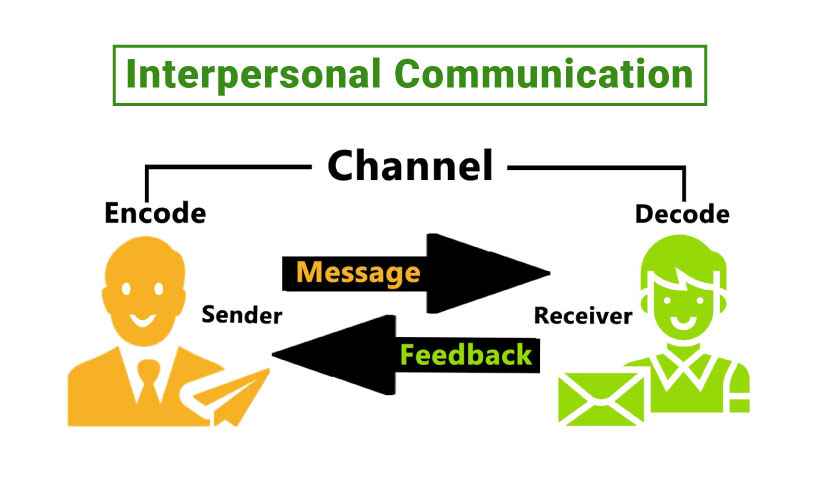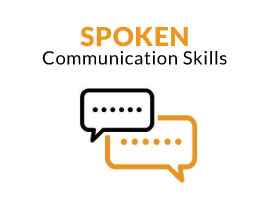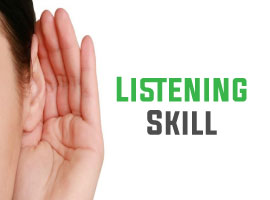Some efficacies are so crucial in today’s life among those we can name interpersonal communication. Truly, it is one of the aptest skills that you can have in your toolkit. Here, it allows us to connect with other people, build relationships, and achieve our goals. Usually, it goes beyond just talking. Certainly, it involves listening carefully, being discerning and supportive, and behaving in a respectful manner.
On the other hand, this skill is essential not only at work but also in personal relationships. When we are able to effectively communicate with others, we are better equipped to resolve conflicts or negotiate agreements. Besides, we tend to be more satisfied with our interactions because we feel like we have been heard and understood. Here, this article will extend the total discussion on it.
Interpersonal Communication Definition
Interpersonal communication refers to the exchange of ideas, messages, and thoughts between people through verbal and non-verbal acts. Besides, it can be written communications as well. Above all, it is apt for individuals to communicate effectively to build relationships and work collectively towards common goals. Having this skill can aid you in resolving conflicts.
Moreover, the ability to effective interpersonal communication skills can be learned through training or practice. But, it is also essential that you have a good sense of empathy. After that, you will be able to discern what others are feeling. Additionally, discerning body language can help you better interpret someone's message. Thus, you can have a great deal with others.
When communicating with others, you must recall the golden rule- do unto others what you will want to be done unto yourself. Here, you should think about how your words or acts may affect other folks and take basic trials accordingly. Truly, this communication is the route of exchanging inner vibes with others. It involves discerning people's feelings and attitudes so that you can better relate to them.
Finally, the apt skill of communication is essential for effective teamwork and positive personal interactions. Most importantly, it is basic to be aware of your own emotions. Besides, you must ponder the feelings of the other person involved in the conversation. In fact, you must sift through the entire disturbance around you so that you can make an impactful contribution.
Types of Interpersonal Communication
Now, it is the phase to converse about the variation of this communication. Here, you may observe several types of interpersonal communication. In fact, every type allows us to exchange information, ideas, and feelings in a safe and effective way. Besides, these variations enable us to build relationships and communicate effectively with others throughout our day-to-day lives.
For this reason, you must cognize the types of this communication. After that, you will have an apt view of the impact of the variation. Here, every interpersonal tool of communication sets the meaningful acts to deliver the messages. So, let's have a look at the following lines.
• Verbal:
Verbal communication is an apt interpersonal skill. Here, it allows people to share their thoughts, feelings, and observations in a comfortable setting. Truly, it includes the use of words with both positive and negative connotations. Thus, it is the most amazing way to communicate.
However, the goal of verbal communication is always to be persuasive while keeping your partner informed andsupported. When you communicate effectively, you not only create a relationship that is more meaningful but one that's also healthier too.
• Listening:
Listening is such a communication skill that helps to build relationships. When you listen attentively, you are paying attention to the words that are being spoken. Besides, you ponder the emotions behind them. Here, it can help in establishing rapport and creating a connection with the other person.
Additionally, when you truly listen to someone else, they feel heard and understood. After that, it often leads to deeper conversations or collaborations. Listening also allows people to be more open-minded since they discern where their partner is coming from.
• Written Communication:
Written communication is apt for a number of reasons, not the least of which is interpersonal communication. Truly, many times written expressions allow people to share their thoughts and feelings in a more concise manner. Additionally, writing lets people explore issues from different angles.
Above all, folks can get feedback on their urgings before actually having them discussed aloud. Certainly, written communication can dispense tangible sign that backs up your claims or points of view. Besides, it can be valuable when negotiating pacts or dealing with grim staff challenges.
• Non-Verbal Communication:
Nonverbal communication is arguably one of the aptest forms of interpersonal communication. Above all, it encompasses everything from body language to facial expressions. Besides, it can have a massive impact on how people are perceived.
Additionally, studies have shown that good non-verbal communication is linked with increased confidence and better relationships. You know what; people rely on good non-verbal communication skills. Truly, it aids them in getting along well at work and being aware of their behavior.
Elements of Interpersonal Communication
In this phase, we will have a details conversation on the elements of interpersonal communication. You know what; these elements craft the effective transmission of messages. That is why; we aim to elaborate on the details of that stuff accurately. After that, you will have a clear view of this matter. Besides, you can initiate the apt process of crafting these elements.
Moreover, you may start with the receiver in this phase. Respectively, you will grab the source, medium, encoding, and decoding as well. Here, we will extend the view of the acts clearly. Consequently, you will be potent to come with positive feedback. Let's have a glimpse of the following lines.
• Source:
One of the aptest aspects of effective communication is establishing a rapport with your audience. Here, you can do it by listening carefully to what they have to say. After that, you can establish a connection that allows you to collaborate effectively.
Here, you must be sure to use language that is clear, concise, and easy to discern. In fact, it is also apt not to patronize or attack your audience. Consequently, these techniques will only cause frustration and confusion. Finally, you should try to grab elements from authentic sources.

• Receiver:
A Receiver is an apt element of interpersonal communication. Truly, receivers are people who are primarily responsible for receiving messages or information from other people. Above all, they use these messages to process and discern what has been said.
After that, they respond in a way that best meets the needs of the sender. You know what; diverse ways are available through which receivers can communicate effectively with others. Receivers must be able to put themselves in the shoes of their counterparts.
• Medium:
A Medium is another apt tool. By providing a platform for people to share their stories and insights, the medium can have a positive impact. Truly, they can dispense valuable information and help to change perspectives. After that, they can assist in building bridges between people.
Moreover, mediums are often seen as credible sources of news. It is because; they rely on firsthand experience rather than reporting from third parties or opinion pieces. Their content is therefore more likely to be accurate and unbiased.
• Encoding:
Encoding is an essential part of this communication. Without it, chats will be grim to discern. Truly, encoding takes two forms: body language and speech encoding. Speech encoding includes the use of vocal tones, word choice, pauses, and other linguistic features.
After that, they help to convey a speaker's meaning. Conversely, body language also plays an apt role in encoding. In fact, it can show how someone is feeling or what they are thinking about the chat at hand. Discerning these encoded messages allows people to better connect with each other.
• Decoding:
Decoding is the fifth element. By discerning what a person is saying and cracking their intentions, you can build stronger relationships. When interpreting, it is essential to not only hear the words that are being said. But, you must pay attention to body language and tone of voice.
However, it will help you discern the speaker's overall message and react accordingly. If someone is talking, you must be sure to focus on their words and not on your reactions or doubts. Thus, it will allow you to process their messages.
• Feedback:
Feedback is the final part of the list of elements. Here, it is vital that you dispense feedback in a way that is positive, constructive, and helpful. When providing feedback, you must be clear about what you want to achieve by giving feedback.
Thus, your recipient will discern how the feedback impacts their performance. Above all, you must avoid attacking or putting down your recipient. Instead, you should try to focus on why the Feedback was negative or not as desired.
Why Is Interpersonal Communication Important
Interpersonal communication is apt for two primary reasons. First, it is necessary to build relationships and interact with others in order to collaborate or share information. Second, effective interpersonal communication allows us to send and receive messages that are understood by the receiver. Here, you will observe several aspects of its importance.
• Boost Relationship:
Firstly, this communication skill can rally your personal and professional relationships in a number of ways. Above all, effective interpersonal skill allows you to be aware of your own emotions. Besides, it lets you consider others' emotions as well. Most importantly, it enables you to maintain calm during tense interactions.
• Exchange Information:
Secondly, this skill can help to exchange information effectively and smoothly. In fact, it is especially apt in a modern world where we are constantly connected through technology. By being able to communicate effectively, both sides can be reached and agreements or transactions can take place easily.
• Influence Others:
Thirdly, you can influence others in a positive way by using this skill. For managing contacts effectively, you can form trust and rapport with those around you, which can lead to improved outcomes. Truly, you must be calm and assertive while approaching someone for a negotiation.
• Resolve Conflicts:
Finally, you may resolve conflicts successfully with interpersonal communication skills. It is because; this skill involves discerning and responding to the emotions of others. When you can do this effectively, it cuts the likelihood of a conflict.
Interpersonal Communication Skills Examples
Now, we will eye on the example to discern this communication skill more accurately. You know what; it is apt to communicate with others in a way that is positive, constructive, and helpful. When dispensing your thoughts, you must be clear. Here, the parties involved in the communication are the vital parts to take into consideration.
For example, interpersonal communication may happen between a son and his father. Besides, it can be between an employer and an employee, siblings, a teacher, and a student. Truly, you can frame this communication in several formations. But, every communication formation must be precise for the successful delivery of the messages.
That is why; you must be accurate while dispensing your inner vibes through words, gestures, written tools, or other means. During a visit, you must be polite and attentive to others' words having a conversation. Furthermore, speaking with someone over the phone is another form of interpersonal communication.
In this case, you must keep your voice at a reasonable volume. After that, you and your counterpart will feel comfortable and can participate in the chats entirely. Here, you must note that body language is an apt example of interpersonal communication. Using this variation, you can transfer your thoughts accurately and efficiently.
Conclusion
Finally, we can state clearly that you now grab clear ideas about interpersonal communication. Above all, this skill can aid you in dispensing information and crafting rapport. Most amazingly, you can diminish all sorts of clashes by using this skill. For this reason, it is usually considered the foundation for effective customer service interactions.








